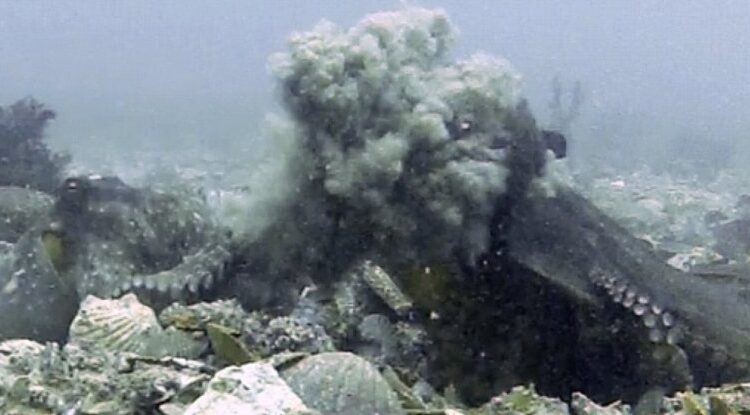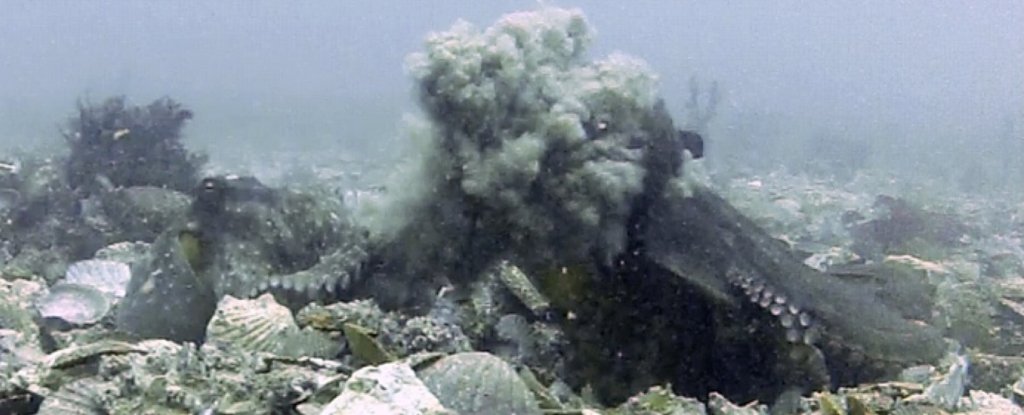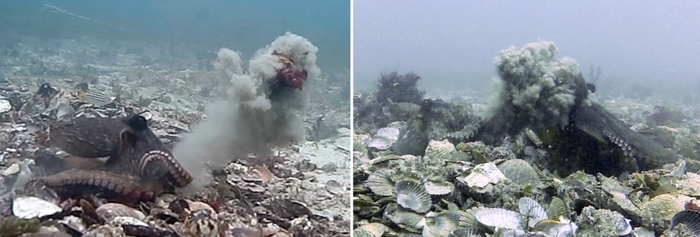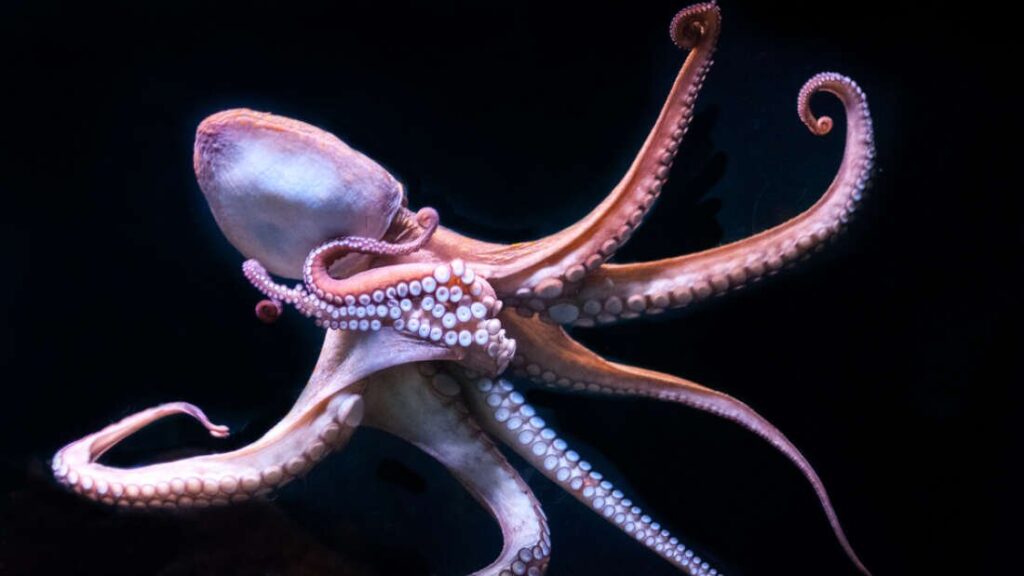
In the enigmatic depths of the ocean, a peculiar phenomenon has captured the attention of researchers, shedding light on the intricate social dynamics and remarkable intelligence of octopuses. Following recent reports of octopuses engaging in seemingly purposeless fish-punching, a new and equally baffling behavior has come to light – octopuses hurling debris at each other in a display of irritation. This astonishing conduct, outlined in an unpublished study, offers a glimpse into the complex world of these marine creatures and their unconventional means of interaction.
The spectacle of these petulant outbursts was captured by cameras off the coast of Australia back in 2015. Initially, scientists were uncertain whether the debris launches were deliberate actions or mere accidents. However, a comprehensive analysis has left little room for doubt, as the researchers behind the study revealed in their findings.

The researchers describe this extraordinary behavior as follows: “Wild octopuses at an Australian site frequently propel shells, silt, and algae through the water by releasing these materials from their arms while creating a forceful jet from the siphon held under the arm web.” Intriguingly, these “throws” occurred within various contexts, including interactions between individuals of the same species, and often resulted in direct hits on unsuspecting octopuses.
In a particularly striking instance, an observant researcher witnessed an octopus deploying one of its tentacles to launch a shell with frisbee-like precision, striking another octopus directly. The impact was undoubtedly an uncomfortable experience for the recipient, highlighting the apparent intensity of these interactions.
Interestingly, the throwing behavior seemed to be predominantly exhibited by female octopuses. The researchers observed a mere 11 throws from male octopuses compared to a remarkable 90 throws from their female counterparts. These actions often appeared to be responses to harassment or irritating conduct from other individuals within their environment. For instance, a female octopus was documented retaliating against a persistent male suitor by flinging silt in his direction a staggering ten times.

While the researchers initially questioned whether these throws were accidental, similar to the debris-clearing or food-discarding behavior observed in octopuses, they soon discovered subtle nuances that set the deliberate throws apart. Octopuses demonstrated a shift in their behavior when targeting their fellow cephalopods, utilizing different tentacles and body positioning to precisely aim their projectiles. In some cases, the intended recipients even seemed to anticipate the impending barrage and attempted to dodge the incoming missiles.
This unusual behavior led the researchers to an intriguing conclusion: these projectile attacks appear to serve a communicative function within octopus society. Whether managing social interactions or expressing frustration, these actions seem to be part of an intricate communication system that transcends the boundaries of traditional understanding.
The octopus’s ability to utilize throwing as a means of interaction and communication places them in a select group of animals known to exhibit such behavior. Their striking cognitive capacity, combined with these newfound insights into their social dynamics, further cements the octopus’s position as one of the ocean’s most enigmatic and fascinating inhabitants.

In summary, as researchers delve deeper into the hidden world of octopus behavior, the intricate dance of tossing shells and debris emerges as a unique form of expression and interaction, enriching our understanding of these captivating marine creatures. As we unravel more layers of their complex lives, octopuses continue to defy expectations and unveil the astonishing depths of their intelligence.

This is a possible genetic alien with blue blood (carbon based?), very intelligent, three hearts, 9 brains, etc. Studies done over the past 10 years are fascinating!! Public TV had a film about one scientist who brought one home (to an aquarium) that bonded with his daughter. They are still finding so many animals in our oceans, Such a shame so many have a short life span. And some people think there’s nothing new in our oceans and we already know everything about it. It would be really interesting if we find the genetic cousin of the octopus on one of Saturn’s moons.